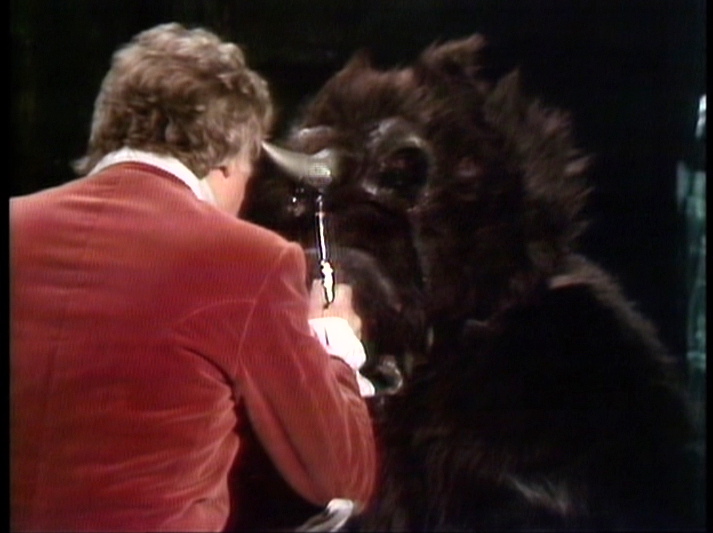And against what, precisely, am I supposed to be warning the world?
One does not begrudge an artist returning to a favored, familiar theme. So the fact that Robert Sloman’s Season Nine finale, “The Time Monster” (Story Production Code OOO) reads almost identically to his (with Barry Letts) Season Eight finale, “The Daemons,” can be forgiven, if only because of the depth of world-building that occurs in this six part story. We learn much about the Doctor, the TARDIS, and the Doctor’s relationship with the Master, enough so that we can (mostly) overlook our realization that we’ve already seen this story play out.

Where, in “The Daemons,” the Master disguised himself as a vicar in order to use the occult altar beneath the vicarage to summon the Daemon Azal, here he puts on a professor’s tweeds and uses government grants to build a time manipulation device capable of summoning an extra-dimensional being of immense power: Chronos, the Chronovore, a time-eater that lives in the interstices between moments. Instead of Morris dancers and brainwashed villagers, his allies now include a graduate student, a doctoral candidate, and an Atlantean high priest accidentally brought forward almost four thousand years from the past. A step up, all things considered.

The story takes a while to get moving. Two episodes are devoted to establishing the Master’s device, the TOMTIT (Transmission of Matter through Interstitial Time), and bringing UNIT, which is inadvertently funding the Master’s research, onto the scene. Many loving close-ups of a teleporting tea saucer fill the opening scenes. Several bureaucrats are given a narrative build-up, only to be dismissed by the Brigadier with no further involvement in the story, and a window washer who looks in on the teleportation events falls from his ladder in shock, his near-death state essentially ignored.
“The Time Monster” shows all the hallmarks of a story stretched from four to six episodes to fill the schedule, and yet the slowness of pacing gets turned on its head in the final two episodes, such that when the Master’s erstwhile (and innocent) assistants try to free the Brigadier and a UNIT platoon from a time bubble and accidentally turn Sergeant Benton into a baby at the end of the fourth episode, this dramatic retrogression isn’t even brought back up until the very end of the last episode. Because the Doctor, Jo, and the Master have a date in Atlantis…















